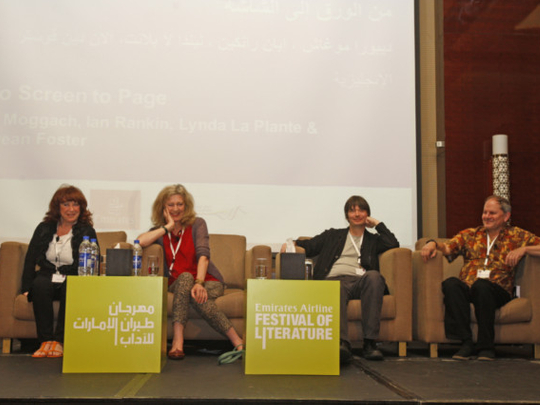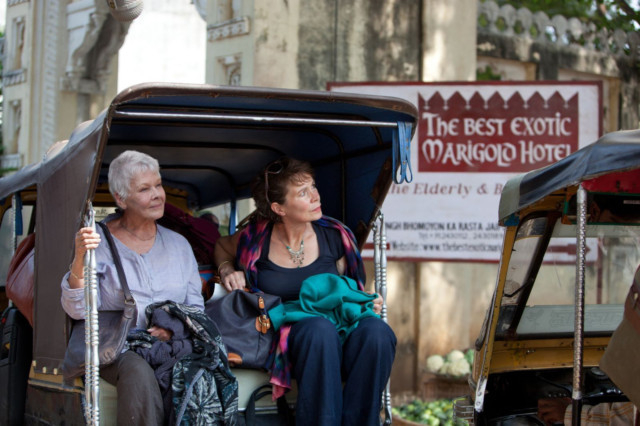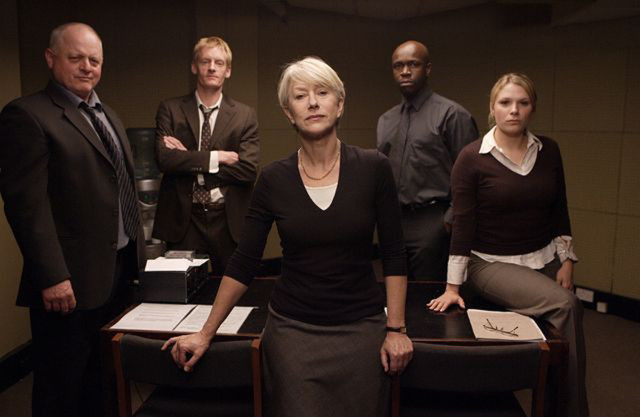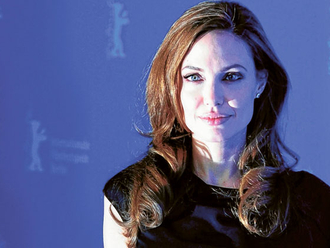
Dubai: If there’s one thing that’s harder than writing your own book, it’s writing a movie screenplay based on that book. “It’s like dismembering your own child,” says Deborah Moggach.
And she would know: Moggach’s book These Foolish Things became the 2011 movie The Best Exotic Marigold Hotel. If you both read the book and saw the movie and were disappointed in how the movie turned out, you’re not alone.
In a session at the Emirates Airline Literature Festival last week, discussing how The Best Exotic Marigold Hotel went from page to screen, Moggach said that although she wrote the original script for the film, she was not involved in the process after that, and the final product had “changed hugely… [in] some ways I didn’t terribly like.”
Unlike novel writing, which is often a very private thing, screenwriting is a collaborative process with multiple people involved, including the producer and later the director, explains Moggach, who has written many screenplays, including the BAFTA-nominated script for Pride and Prejudice. “Your first draft is usually very faithful to the book,” she says of the process. “By the time you’re writing the second and third and fourth draft, you’ve forgotten the book. The screenplay starts to have its own energy and shape.”
“The plot itself may change,” Moggach adds.
It’s not a pill everyone can swallow. Ian Rankin, the mind behind the Inspector Rebus novels, can’t even watch the television adaptations of his series, let alone write the scripts for them.
“I’m a control freak and I have a God-like ego,” he said jokingly in a session focused on how books become screenplays and vice versa, pointing out that screenwriters are usually “lower down the food chain” on a film set and have less control over content than a novelist would.
But besides that, film and television are a very different way of presenting characters and narratives, Rankin said, adding that over time his books were getting longer but the television adaptations were getting shorter, making for a series that has less and less to do with the original material he produced.
“It’s a horrible poacher-turned-gamekeeper feeling,” said Moggach of the adaptation process. “It’s like being away from home and somebody breaks in to your house and rifles through your knicker drawer.”
As if time wasn’t constricting enough, the budget of the project and what can be done practically must also be taken into consideration. Lynda La Plante, who writes the British crime series Prime Suspect for ITV based on her books by the same name, is a producer of other shows based on her work. That gives her a lot more control over the script than the average screenwriter would have, but even she can’t realize her vision to its last detail.
“The budget is vastly shrinking when you’re doing a television script from your novel,” she said.
La Plante explained, “In the novel I got 20 police patrol cars going out, helicopter above, and then in the meeting [you’re told] well we can have two cars. I said, two cars, we can’t have two cars! They said ‘Yes well we’ll do a lot of sirens.’ And there’s absolutely no hope of a helicopter.”
If that’s too much change for the writer to handle, Alan Dean Foster has some advice: “Take large amounts of drugs and remain in a comatose state until the project comes out.”
Foster is most well-known for his science fiction writing and while he’s written scripts, he’s also taken movies and turned them into books. He wrote the original Star Wars novel and has written the Star Trek series.
With such blockbusters under his belt, you can bet Foster has ample experience with the world of showbusiness, and as a writer it hasn’t always been glamorous and fun. During the session, Foster related an incident that happened to him with his short story Sanctuary. The American Science Fiction channel wanted to develop it as the first episode of a series called Welcome to Paradox, but talks about purchasing the rights were dropped. Later, the series was announced with Sanctuary as the pilot episode and shooting was already underway, despite the fact that Foster had never signed a contract for the rights.
“I ended up being much too nice about it, when I could have sued them from here to Mars,” he said, adding that the script was completely different from his story. “The gall that exists [in the entertainment industry] is beyond belief.”
Disappointment can be a hallmark of adapting one’s work to the screen. Often a writer’s involvement with the adaptation ends when he or she signs the rights away.
“Mostly what you get is the photograph of the actor on the front of your book and you hope that somebody might pick it up,” said Rankin, adding that the television adaptations of his books had some impact on sales, particularly internationally.
Another thing that can be difficult for the writers is that the characters they’ve developed can get sacrificed at the screenplay altar. In The Best Exotic Marigold Hotel, many characters were cut or were not as fully developed as they were in the book – Norman’s character, for example, was much more grim in the book, said Moggach, and the elderly characters’ children also played a role in the story but were not shown in the film. Even the story’s setting changed from Bangalore in the book to Jaipur in the film.
The main character of La Plante’s Prime Suspect series Jane Tennison also had an unwelcome change – she is depicted as an alcoholic in the series. “To me it was very very sad that I created a character that was so admired as a woman and her advancement in her career, and they have to make her an alcoholic,” said La Plante. “I hated that”
But at least for Moggach, she was able to get behind the film adaptation because of the acting prowess of stars like Judi Dench, Bill Nye and Maggie Smith, who starred in The Best Exotic Marigold Hotel.
And while bad acting or a bad adaptation can certainly stick out – La Plante said the movie version of The Girl with the Dragon Tattoo just didn’t work for her, and Foster hated the 1927 version of Moby Dick – a strong adaptation can give the novel a new dimension. Rankin pointed to The Godfather as a “potboiler” of a book that turned into a phenomenal film.













